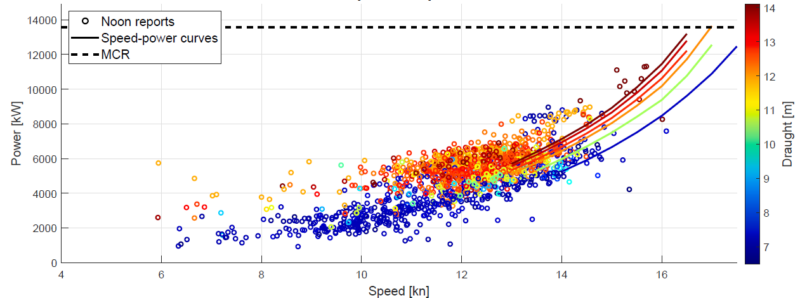



Setting a correct performance benchmark is crucial for monitoring vessel hull performance efficiently. With more ships’ slow steaming in order to meet EEXI requirements, accurate benchmarking can become an issue because sea trials and model tests are typically performed in the design speed range, thus the benchmark in the slow steaming range has to be established using other methods.

Frederik Hammer Berthelsen, who worked here at Coach Solutions during his Naval Architecture studies, has looked at this exact problem in his Master Thesis from Technical University of Denmark – DTU, working on a robust method for extrapolating speed/power curves from a known design speed range to an unknown slow steaming range.

Abstract from Frederik’s article: This study investigates the speed-power relationship of ships, and is based on a combined econometric and naval architectural data-driven model fed with operational data from more than 50,000 Noon Reports obtained from 88 tankers. It is shown that the speed-power exponent is significantly lower than 3 at speed intervals below the design speed.
This finding, including the study itself, affects the environmental discussions related to slow steaming, since it implies that slow steaming will not be as good as often stated. As such, the study imparts attention to speed optimisation, rather than reduction, in the political and environmental debate focused on the reduction of carbon emissions from shipping.
You can read the findings HERE in the article, which has just been published.